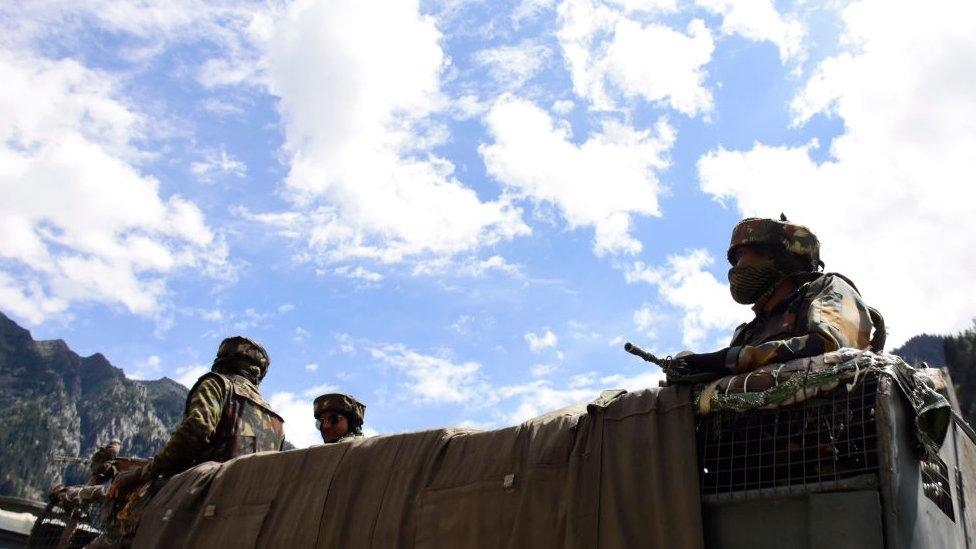Ladakh: China reveals soldier deaths in India border clash
- Published

India and China have been locked in a border dispute for decades
China has for the first time revealed that four of its soldiers died during a bloody Himalayan border clash with Indian troops in June last year.
The men died after fighting "foreign troops" who "crossed into the Chinese border", said Chinese state media.
The skirmish had taken place in the Galwan Valley in India's Ladakh region, and soldiers had reportedly fought with stones and nail-studded clubs.
It was the first deadly clash in the disputed border area in 45 years.
Previously India said that 20 of its soldiers were killed in last year's clash, while Beijing acknowledged casualties but did not disclose details.
On Friday, China's military news outlet PLA Daily named the "heroic" Chinese soldiers who gave their "youth, blood and even life" to the region - Chen Hongjun, Chen Xiangrong, Xiao Siyuan and Wang Zhuoran. They were all given posthumous awards.
Wang had died after drowning in icy waters while crossing a river to reach his army mates, said the report.
Meanwhile, another man, regimental commander Qi Fabao, was also given honours after sustaining "serious injuries".
Allow Twitter content?
This article contains content provided by Twitter. We ask for your permission before anything is loaded, as they may be using cookies and other technologies. You may want to read and before accepting. To view this content choose āaccept and continueā.
India and China have been locked in a border dispute for decades. The root cause of the tension is an ill-defined, 3,440km (2,100-mile)-long disputed border called the Line of Actual Control.
Rivers, lakes and snowcaps along the frontier mean the line can shift, bringing soldiers face to face at many points, sparking a confrontation. The two countries however have a long-standing agreement to not use guns or explosives along the border.
In January this year, the two armies also clashed along the border in the north-east in India's Sikkim state, leaving troops on both sides injured.
But India and China have since agreed to "disengage" from the border are now in the midst of pulling back troops from part of the border.
Ros Atkins looks at what happened on the India-China border in June 2020
Related topics
- Published11 February 2021
- Published14 December 2022